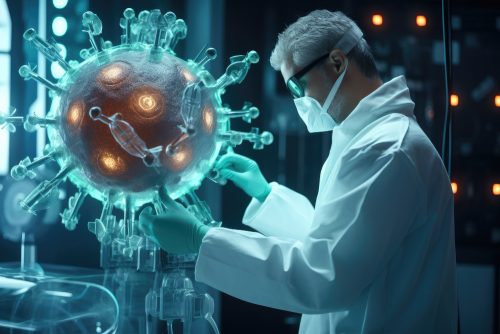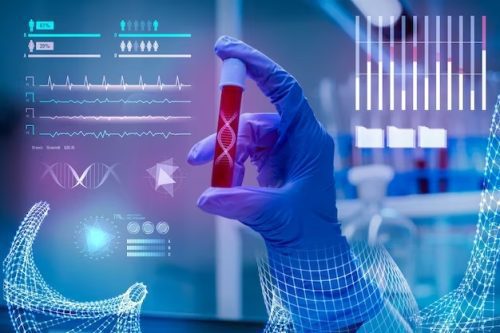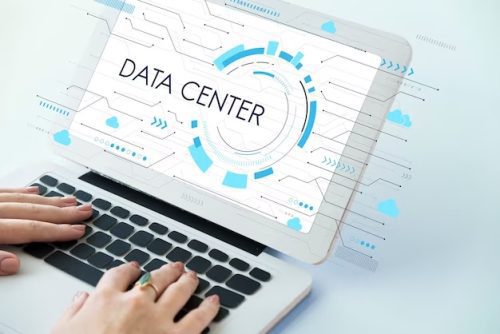Subscribe to Newsletter
Subscribe to Newsletter
Subscribe to Newsletter
Subscribe to Newsletter
Subscribe to Newsletter
Subscribe to Newsletter
Subscribe to Newsletter
Subscribe to Newsletter
Subscribe to Newsletter
Subscribe to Newsletter
Subscribe to Newsletter
Subscribe to Newsletter
Subscribe to Newsletter
Subscribe to Newsletter
Subscribe to Newsletter
Subscribe to Newsletter
Subscribe to Newsletter
Subscribe to Newsletter
Subscribe to Newsletter
Subscribe to Newsletter
Subscribe to Newsletter
Subscribe to Newsletter
Subscribe to Newsletter
Subscribe to Newsletter
Subscribe to Newsletter
Subscribe to Newsletter
Subscribe to Newsletter
Subscribe to Newsletter
Subscribe to Newsletter
Subscribe to Newsletter
Subscribe to Newsletter
Subscribe to Newsletter
Subscribe to Newsletter
Subscribe to Newsletter
Subscribe to Newsletter
Subscribe to Newsletter
Subscribe to Newsletter
Subscribe to Newsletter
Subscribe to Newsletter
Subscribe to Newsletter
Subscribe to Newsletter
Subscribe to Newsletter
Subscribe to Newsletter
Subscribe to Newsletter
Subscribe to Newsletter
Subscribe to Newsletter
Subscribe to Newsletter
Subscribe to Newsletter
Subscribe to Newsletter
Subscribe to Newsletter
Subscribe to Newsletter
Subscribe to Newsletter
Subscribe to Newsletter
Subscribe to Newsletter
Subscribe to Newsletter
Subscribe to Newsletter
Subscribe to Newsletter
Subscribe to Newsletter
Subscribe to Newsletter
Subscribe to Newsletter
Subscribe to Newsletter
Subscribe to Newsletter
Subscribe to Newsletter
Subscribe to Newsletter
Subscribe to Newsletter
Subscribe to Newsletter
Subscribe to Newsletter
Subscribe to Newsletter
Subscribe to Newsletter
Subscribe to Newsletter
Subscribe to Newsletter
Subscribe to Newsletter
Subscribe to Newsletter
Subscribe to Newsletter
Subscribe to Newsletter
Subscribe to Newsletter
Subscribe to Newsletter
Subscribe to Newsletter
Subscribe to Newsletter
Subscribe to Newsletter
Subscribe to Newsletter
Subscribe to Newsletter
Subscribe to Newsletter
Subscribe to Newsletter
Subscribe to Newsletter
Subscribe to Newsletter
Subscribe to Newsletter
Subscribe to Newsletter
Subscribe to Newsletter
Subscribe to Newsletter
Subscribe to Newsletter
Subscribe to Newsletter
Subscribe to Newsletter
Subscribe to Newsletter
Subscribe to Newsletter
Subscribe to Newsletter
Subscribe to Newsletter
Subscribe to Newsletter
Subscribe to Newsletter
Subscribe to Newsletter
Subscribe to Newsletter
Subscribe to Newsletter
Subscribe to Newsletter
Subscribe to Newsletter
Subscribe to Newsletter
Subscribe to Newsletter
Subscribe to Newsletter
Subscribe to Newsletter
Subscribe to Newsletter
Subscribe to Newsletter
Subscribe to Newsletter
Subscribe to Newsletter
Subscribe to Newsletter
Subscribe to Newsletter
Subscribe to Newsletter
Subscribe to Newsletter
Subscribe to Newsletter
Subscribe to Newsletter
Subscribe to Newsletter
Subscribe to Newsletter
Subscribe to Newsletter
Subscribe to Newsletter
Subscribe to Newsletter
Subscribe to Newsletter
Subscribe to Newsletter
Subscribe to Newsletter
Subscribe to Newsletter
Subscribe to Newsletter
Subscribe to Newsletter
Subscribe to Newsletter
Subscribe to Newsletter
Subscribe to Newsletter
Subscribe to Newsletter
Subscribe to Newsletter
Subscribe to Newsletter
Subscribe to Newsletter
Subscribe to Newsletter
Subscribe to Newsletter
Subscribe to Newsletter
Subscribe to Newsletter
Subscribe to Newsletter
Subscribe to Newsletter
Subscribe to Newsletter
Subscribe to Newsletter
Subscribe to Newsletter
Subscribe to Newsletter
Subscribe to Newsletter
Subscribe to Newsletter
Subscribe to Newsletter
Subscribe to Newsletter
Subscribe to Newsletter
Subscribe to Newsletter
Subscribe to Newsletter
Subscribe to Newsletter
Subscribe to Newsletter
Subscribe to Newsletter
Subscribe to Newsletter
Subscribe to Newsletter
Subscribe to Newsletter
Subscribe to Newsletter
Subscribe to Newsletter
Subscribe to Newsletter
Subscribe to Newsletter
Subscribe to Newsletter
Subscribe to Newsletter
Subscribe to Newsletter
Subscribe to Newsletter
Subscribe to Newsletter
Subscribe to Newsletter
Subscribe to Newsletter
Subscribe to Newsletter
Subscribe to Newsletter
Subscribe to Newsletter
Subscribe to Newsletter
Subscribe to Newsletter
Subscribe to Newsletter
Subscribe to Newsletter
Subscribe to Newsletter
Subscribe to Newsletter
Subscribe to Newsletter
Subscribe to Newsletter
Subscribe to Newsletter
Subscribe to Newsletter
Subscribe to Newsletter
Subscribe to Newsletter
Subscribe to Newsletter
Subscribe to Newsletter
Subscribe to Newsletter
Subscribe to Newsletter
Subscribe to Newsletter
Subscribe to Newsletter
Subscribe to Newsletter
Subscribe to Newsletter
Subscribe to Newsletter
Subscribe to Newsletter
Subscribe to Newsletter
Subscribe to Newsletter
Subscribe to Newsletter
Subscribe to Newsletter
Subscribe to Newsletter
Subscribe to Newsletter
Subscribe to Newsletter
Subscribe to Newsletter
Subscribe to Newsletter
Subscribe to Newsletter
Subscribe to Newsletter
Subscribe to Newsletter
Subscribe to Newsletter
Subscribe to Newsletter
Subscribe to Newsletter
Subscribe to Newsletter
Subscribe to Newsletter
Subscribe to Newsletter
Subscribe to Newsletter
Subscribe to Newsletter
Subscribe to Newsletter
Subscribe to Newsletter
Subscribe to Newsletter
Subscribe to Newsletter
Subscribe to Newsletter
Subscribe to Newsletter
Subscribe to Newsletter
Subscribe to Newsletter
Subscribe to Newsletter
Subscribe to Newsletter
Subscribe to Newsletter
Subscribe to Newsletter
Subscribe to Newsletter
Subscribe to Newsletter
Subscribe to Newsletter
Subscribe to Newsletter
Subscribe to Newsletter
Subscribe to Newsletter
Subscribe to Newsletter
Subscribe to Newsletter
Subscribe to Newsletter
Subscribe to Newsletter
Subscribe to Newsletter
Subscribe to Newsletter
Subscribe to Newsletter
Subscribe to Newsletter
Subscribe to Newsletter
Subscribe to Newsletter
Subscribe to Newsletter
Subscribe to Newsletter
Subscribe to Newsletter
Subscribe to Newsletter
Subscribe to Newsletter
Subscribe to Newsletter
Subscribe to Newsletter
Subscribe to Newsletter
Subscribe to Newsletter
Subscribe to Newsletter
Subscribe to Newsletter
Subscribe to Newsletter
Subscribe to Newsletter
Subscribe to Newsletter
Subscribe to Newsletter
Subscribe to Newsletter
Subscribe to Newsletter
Subscribe to Newsletter
Subscribe to Newsletter
Subscribe to Newsletter
Subscribe to Newsletter
Subscribe to Newsletter
Subscribe to Newsletter
Subscribe to Newsletter
Subscribe to Newsletter
Pollution Control via Microbial Degradation
Empowering Nature to Heal Nature: Harnessing Microbial Power for Pollution Control
Online/ e-LMS
Mentor Based
Advanced
1 Month
About
This program focuses on leveraging microbial degradation mechanisms to combat pollution and environmental contamination effectively. By harnessing the natural abilities of microorganisms, it aims to develop innovative strategies for remediation, targeting a wide range of pollutants such as organic compounds, hazardous chemicals, and contaminants in soil, water, and air. Through interdisciplinary research and collaboration, the program seeks to deepen our understanding of microbial processes, optimize degradation pathways, and implement sustainable solutions that promote environmental health and ecosystem resilience.
Participants in this program engage in hands-on research, exploring the diverse roles of microorganisms in pollutant degradation and bioremediation techniques. They work towards developing practical applications and technologies that can be deployed in various environmental settings, from industrial sites to natural habitats. Ultimately, the program strives to address pressing environmental challenges, protect human health, and foster a cleaner and healthier planet through the power of microbial degradation.
Aim
The aim of the “Pollution Control via Microbial Degradation” program is to develop effective and sustainable solutions for mitigating pollution by leveraging the natural abilities of microorganisms to degrade harmful pollutants. Through interdisciplinary research and innovation, the program seeks to advance our understanding of microbial degradation processes and their application in remediation strategies for various environmental pollutants, including organic contaminants, hazardous chemicals, and pollutants in soil, water, and air. By harnessing the power of microbial communities, the program aims to contribute to the preservation and restoration of ecosystems, safeguard human health, and promote environmental sustainability.
Program Objectives
- Promote Collaboration and Knowledge Exchange: Collaboration and knowledge exchange among researchers, practitioners, policymakers, and stakeholders are essential objectives of the program. By fostering interdisciplinary partnerships and sharing best practices, the program aims to enhance the effectiveness of pollution control efforts.
- Inform Policy and Decision Making: The program seeks to provide scientific evidence and recommendations to inform environmental policies, regulations, and decision-making processes. This includes translating research findings into actionable insights for policymakers and stakeholders involved in pollution management.
- Empower Communities and Stakeholders: Empowering communities and stakeholders to participate in pollution control efforts is a key objective of the program. This involves providing education, training, and resources to enable local communities to address pollution issues effectively and sustainably.
- Facilitate Technology Transfer and Adoption: The program aims to facilitate the transfer of research findings and technologies from the laboratory to real-world applications. This includes promoting the adoption of microbial degradation techniques by industry, government agencies, and environmental organizations.
- Address Global Environmental Challenges: By addressing pollution at local, regional, and global scales, the program contributes to addressing pressing environmental challenges such as climate change, biodiversity loss, and human health impacts.
Program Structure
1.Bioremediation: Definition and types
2.Microorganisms used in Bioremediation
3.Remediation of Pollutants
4.Future Aspects of Bioremediation
5.Project Report Submission/ Article Writing
Participant’s Eligibility
- Educational Background: Participants may be required to have a background in relevant fields such as microbiology, environmental science, biotechnology, chemistry, or related disciplines. This could range from undergraduate to postgraduate level qualifications.
- Research Experience: Some programs may prefer participants with prior research experience in areas related to microbial degradation, environmental microbiology, bioremediation, or pollution control. Experience in laboratory techniques, experimental design, and data analysis could be beneficial.
- Interest and Motivation: Individuals with a strong interest in environmental sustainability, pollution control, and microbial biotechnology are often preferred. A demonstrated commitment to addressing environmental challenges and a clear understanding of the importance of microbial degradation in pollution control may be advantageous.
- Skills and Expertise: Proficiency in relevant technical skills, such as microbial culturing, molecular biology techniques, analytical chemistry, and environmental monitoring, may be required or preferred depending on the focus of the program.
- Language Proficiency: Depending on the language of instruction and communication, participants may be required to demonstrate proficiency in the relevant language(s), typically English.
Program Outcomes
- Innovative Solutions: Participants may develop innovative strategies and technologies for pollution control and remediation using microbial degradation processes. These solutions could include novel bioremediation techniques, microbial consortia for pollutant degradation, or biotechnological applications for environmental restoration.
- Environmental Impact: The program may lead to significant improvements in environmental quality by reducing pollution levels, restoring degraded ecosystems, and protecting natural habitats. This could have positive impacts on biodiversity, ecosystem services, and human health.
- Scientific Knowledge: Participants may advance scientific understanding of microbial degradation processes, bioremediation mechanisms, and microbial ecology. Their research findings could contribute to the body of knowledge in environmental microbiology and related fields.
- Technological Advancements: The program could result in the development of new technologies, tools, and methodologies for monitoring, assessing, and managing environmental pollution. These advancements could enhance the efficiency, effectiveness, and sustainability of pollution control efforts.
Fee Structure
Standard Fee: INR 29,998 USD 640
Discounted Fee: INR 14999 USD 320
We are excited to announce that we now accept payments in over 20 global currencies, in addition to USD. Check out our list to see if your preferred currency is supported. Enjoy the convenience and flexibility of paying in your local currency!
List of CurrenciesBatches
Certificate
Program Assessment
Certification to this program will be based on the evaluation of following assignment (s)/ examinations:
| Exam | Weightage |
|---|---|
| Mid Term Assignments | 50 % |
| Project Report Submission (Includes Mandatory Paper Publication) | 50 % |
To study the printed/online course material, submit and clear, the mid term assignments, project work/research study (in completion of project work/research study, a final report must be submitted) and the online examination, you are allotted a 1-month period. You will be awarded a certificate, only after successful completion/ and clearance of all the aforesaid assignment(s) and examinations.
Program Deliverables
- Access to e-LMS
- Real Time Project for Dissertation
- Project Guidance
- Paper Publication Opportunity
- Self Assessment
- Final Examination
- e-Certification
- e-Marksheet
Future Career Prospects
- Environmental Scientist/Engineer: Specialize in pollution control, remediation, and environmental monitoring, working for government agencies, consulting firms, or environmental organizations.
- Bioremediation Specialist: Develop and implement bioremediation strategies for cleaning up contaminated soil, water, and air at industrial sites, brownfields, and hazardous waste sites.
- Microbial Ecologist: Study microbial communities and their roles in ecosystem functioning, biodiversity conservation, and environmental resilience.
- Research Scientist: Conduct research on microbial degradation processes, bioremediation technologies, and environmental microbiology in academia, government research institutions, or private industry.
- Environmental Consultant: Provide expertise in pollution control, environmental compliance, and sustainable practices to industries, regulatory agencies, and communities.
Job Opportunities
- Sustainability Coordinator: Implement sustainable practices and initiatives within organizations, focusing on pollution prevention, resource conservation, and environmental stewardship.
- Biotechnology Entrepreneur: Start a company focused on developing and commercializing microbial-based solutions for pollution control, bioremediation, or environmental monitoring.
- Policy Analyst/Advocate: Shape environmental policies and regulations related to pollution control, microbial degradation, and bioremediation through research, advocacy, and engagement with policymakers and stakeholders.
- Educator/Trainer: Share knowledge and expertise in microbial degradation and pollution control through teaching, training programs, and educational outreach initiatives.
- Environmental Health Specialist: Assess and mitigate the impacts of pollution on human health, working in public health agencies, healthcare organizations, or research institutions.
Enter the Hall of Fame!
Take your research to the next level!
Achieve excellence and solidify your reputation among the elite!
Related Courses

Artificial Intelligence for …

AI Applications in Pharmacy: …

SQL & Power BI Program: …

Data Visualization using …
Recent Feedbacks In Other Workshops
The course was more theoretical than practical.
nothing

